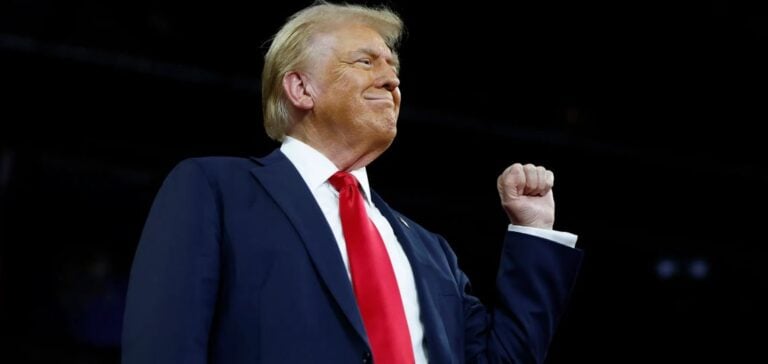The potential for U.S. sanctions against Iraq raises questions about their impact on global energy geopolitics. By targeting one of the main producers within the Organization of the Petroleum Exporting Countries (OPEC), Washington could disrupt trade flows and heighten tensions with major powers like China.
Iraq is a key player in the global oil supply chain, with an estimated production of 4.14 million barrels per day (b/d) in October and exports of 3.6 million b/d. China (41%) and India (28%) are the primary buyers of this oil, giving Iraq a strategic position in energy diplomacy.
A Leverage Against Iranian Influence
The stated goal of the sanctions is to curb Iran’s influence in Iraq, where pro-Iran militias exert significant control over strategic sectors like oil. The State Oil Marketing Organization (SOMO), Iraq’s primary oil marketing entity, has been accused of facilitating clandestine operations that funnel millions of dollars to Tehran-linked groups.
This dynamic fuels regional tensions, particularly with Iran, which provides Iraq with a critical share of its gas and electricity needs. In November, a reduction in Iranian gas exports caused a loss of 5.5 gigawatts (GW) in Iraq’s electricity capacity, highlighting Baghdad’s critical dependency.
An Impact on International Alliances
The sanctions considered by Washington could have major repercussions for international relations. China, Iraq’s main trading partner, would face disruptions to its oil supply, further intensifying U.S.-China tensions.
At the same time, these measures could hinder Iraq’s efforts to diversify its markets. Prime Minister Mohammed al-Sudani’s government aims to build partnerships with Europe and Africa to reduce reliance on Asian markets, but U.S. restrictions would complicate these ambitions.
Economic and Energy Challenges
For Iraq, these sanctions would present a colossal challenge. The country’s economy relies on oil revenues for 95% of its income, totaling $131 billion in 2022. Any reduction in exports or foreign investment could lead to a severe economic and social crisis.
Despite recent agreements with U.S. companies to reduce gas flaring and capture emissions, Western investors are likely to become more hesitant, leaving more room for Chinese companies. Currently, Chinese firms control 7.27% of oil and gas projects in Iraq, compared to only 1.82% for U.S. companies.
The Future of Energy Diplomacy
This situation reflects a shift in power dynamics within global energy diplomacy. As Washington seeks to limit Tehran and Beijing’s influence, Baghdad must navigate between these powers to maintain its interests. This dilemma could shape the future of Iraq’s energy sector and redefine its role in global balances.





















